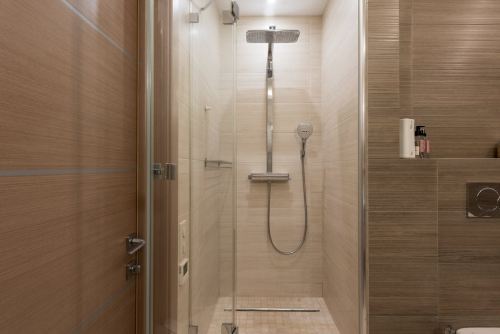Expert shares 27 tips to get a better night’s sleep
We all know just how important sleep is.
A proper night’s rest is essential to our mental and physical health. It sets us up for the day.
Unfortunately, few of us find this as easy as shutting our eyes.
So we’ll eagerly hoover up any tips and tricks that will help us improve our snoozing.
Dr Neil Stanley is a sleep expert with more than 40 years of research experience, and the bestselling author of How To Sleep Well, so he knows his stuff.
He teamed up with Piglet In Bed to reveal 27 of his top tips for improve your sleep routine. Let’s tick ’em off.
Make sure your bedroom is dark
Get some proper blinds or cutains, cover up any sources of light, and stick your phone in your drawer.
‘Darkness is essential for sleep,’ says Dr Neil. ‘Even small amounts of light can be disruptive to sleep and the lighter your bedroom, the worse the problem.
‘Make sure you cover up internal light sources and manage external sources by either installing blackout blinds or heavy lined curtains.
‘It that is not possible, then consider using an eye mask.’
Have a fixed wake-up time every day of the week
Dr Neil says: ‘The most important aspect of waking refreshed is having a set wake-up time seven days a week.
‘Your body and brain start preparing to wake up approx 90 minutes before you actually do, so if you have a fixed wake up time, the body and brain know when they are going to wake and can thus prepare accordingly.’
Quiet your mind
‘The number one prerequisite for getting to sleep is a quiet mind. You cannot fall asleep if your mind is whirring with the care of the day,’ notes Neil. ‘The first thing to do is to put the day to bed a couple of hours before you go to bed, so after this time, don’t open the gas bill, check your work email or have a heated political discussion with your partner.
‘From about 45 minutes before bed no screen, laptops, tablets e-reader, smartphones etc, and then do something that quietens the mind, for some people, this can be reading a book or listening to music, for others it can be a warm bath or a mug of a hot milky drink.
‘There is no magic way to sleep; you need to find what works for you.’
Keep your bedroom the right temperature
We know, it’s tempting to hike up the warmth, bundle yourself in blankets, and drift off feeling like a cozy cinnamon bun in an oven.
But, says Neil, ”for good sleep, the bed can be warm, but the bedroom needs to be cool’.
‘Many experts say that the ideal temperature for the bedroom is 16-18°C (60-65°F), although this is again a matter of personal preference,’ he adds.
‘However, it is not just the room temperature that is important for getting a good night’s sleep. The temperature in your immediate sleeping environment, i.e. under the duvet, is equally important and should be close to a thermo-neutral temperature (i.e. approx. 29oC); however, you are just one big fleshy hot water bottle, so you will heat the space to this temperature just by being in bed.
‘During the night, the body needs to lose heat and this is done mainly through the head and face, the only bits that usually stick out from under the duvet, and thus a cool bedroom facilitates this heat loss.
‘However, if the room is too hot or you are too hot under the duvet, it is more difficult for the body to lose heat and this will cause disturbed sleep. The same is also true if you are too cold, as this means the body has to work hard to maintain its optimal temperature and again, this can disturb sleep.’
Learn if you’re a lark or an owl
Do you know your personal body clock?
It’s important to figure out your body’s natural rhythms, so you can adjust your sleep and wakeup times accordingly. This will help you to avoid ‘sleep inertia’, that feeling of grogginess when you wake up outside of your natural timings.
The right amount of sleep is personal to you
‘Sleep need is individual, like height or shoe size; anywhere between four and 11 hours can be considered normal, although what is important is that you get the right amount of sleep for you,’ says Neil. ‘Our sleep need is genetically determined, so; if you are a nine hour a night person, you need to endeavour to get nine hours.
‘Also, if you are naturally a four hour a night person, you will essentially be wasting your time if you are trying to get what you have been lead to believe is the ideal eight hours a night.
‘However, it needs to be remembered that there is a big difference between getting four hours sleep a night and actually needing only four hours.
‘Simply, if you feel awake and function at a high level during the day, you are probably getting enough sleep, but if you feel sleepy the next day, you are not getting enough sleep.’
Avoid alcohol before bed
Dr Neil says: ‘Alcohol works on the same receptors as sleeping tablets, so it will help put you to sleep; the problems come later in the night; the headache caused by dehydration, the need to visit the bathroom and the disturbed and restless sleep because of feeling hot as you are burning off all the calories.
‘However, a small sherry before bed has never done anyone any harm.’

Be careful with drinking too much at night
Nope, we’re not just talking about alcohol. Drinking too much of any beverage can lead to sleep disturbances.
‘They are liable to cause more awakenings because of the need to go to the toilet during the night,’ Dr Neil says. ‘As we get older, the more prevalent are these night-time awakenings, so restrict the amount of fluids taken for about an hour or so before bedtime and make sure that you empty your bladder one last time before switching the light out.
‘But if the symptoms persist or you start getting up more than once a night to urinate it would be wise to talk to you doctor.’
Remember that when you eat can affect your sleep
‘A heavy meal close to bedtime may make you less comfortable when you settle down for your night’s rest,’ says Dr Neil. ‘A big meal will mean that your body has to burn the calories, and thus your body temperature will go up. However, to get good sleep, your body temperature actually needs to drop during the night.
‘At the same time, going to bed hungry can be just as disruptive to sleep as going to bed too full.’
Make sure you get enough sunlight during the day
‘Sunlight is the most powerful regulator of our biological clock,’ Dr Neil shares.‘This is why we have evolved to sleep during the night and be awake during the day.
‘If you try to sleep during the day, your sleep will be shorter and more disturbed than during the night. So your bedroom should be dark when you want to sleep. Equally, you should ensure exposure to sunlight during the day.’
Consider noise pollution
If your sleep is disrupted by noise, tackle that with earplugs, or try using the drone of an electric fan or relaxing music to drown out irritating sounds.
Put down your screens for 45 minutes before bed
Blue light has been shown to suppress melatonin production, which is essential for sleep.
So, you’ll need to avoid exposure to blue light – which is emitted by screens of smartphones, computers, and so on – before you hit the hay.
Make sleep a priority
‘Your sleep is vitally important to your physical, mental and emotional health; therefore, you need to make time in your life to get the sleep you need,’ Dr Neil says. ‘Prioritise sleep; it should not be the thing you do after everything else.’
Only use your bedroom for sleep
Don’t use your bedroom as your home office, a place to watch TV, or do stretches on your bed as a makeshift yoga mat.
Your bedroom should be devoted only to sleep, so your brain knows that when you’re in there, it’s time to rest.
Consider a sleep divorce
Dr Neil says: ‘In 2005 I co-authored a paper that showed that much of your sleep disturbance is caused by your bed partner and so if they are disturbing your sleep because of snoring or fidgeting, you may want to consider separate beds or even separate bedrooms.
‘If it works for you both, not sleeping together is a mature pragmatic solution to a problem and has no bearing on the strength, or otherwise, of your relationship.
‘Lack of intimacy would be much more suggestive of a problem.’
Don’t try to force sleep
‘Don’t try to fall asleep; the harder you try, the less likely you are to sleep,’ says Dr Neil.
‘If you are tossing and turning for more than 30 minutes at the start of the night or 20 minutes during the night, it may be helpful to get out of bed and do something else, only going back to bed when you feel sleepy again.
‘If you wake early in the morning, it may be easier to get up and do something rather than trying to go back to sleep again.’
Buy an alarm clock
Neil makes a good point: ‘Most people these days use their mobile phones as their alarm clock and co course this put the phone in the bedroom right next to the bed; thus it is a temptation to check the phone during the night or to use it before bed use the phone.’
Get a proper alarm clock – that way you can easily shut your phone in a drawer or put it in a separate room.
Get a big, comfortable bed
A cramped bed is not conducive to a good night’s sleep. The same goes for battling over a too-small duvet.
Get as big a bed as you can fit in your bedroom.
Always have a pen and paper beside your bed
‘If you are worried about something, then write your worries down,’ Dr Neil suggests. ‘They will still be there in the morning, so you don’t have to worry about them during the night.
‘If your mind is racing with everything you have to do tomorrow, make a list of things to be tackled the next day.’
Get active during the day
It’ll be tough to sleep if you’re lazing about all day. Make sure that when the sun’s out, you’re being physically and mentally active.
Avoid napping during the day
‘If you nap throughout the day, it is probably not surprising that you will not be able to sleep at night,’ says Dr Neil. ‘If you are going to nap, a 20-minute nap mid-afternoon will help boost your mental performance.’
Go to bed when you are sleepy
Dr Neil says: ‘If you are sleepy, then go to sleep. If you are not sleepy at bedtime, then do something else; read a book, listen to soft music etc. Find something relaxing but not stimulating to take your mind off of worries about sleep.’
Quality of sleep is just as important as the quantity of sleep
It’s not just about getting eight hours.
Your sleep also needs to be high quality – that means uninterrupted and genuinely restful.
Keep an eye on your caffeine consumption
‘Caffeinated drinks may affect your sleep, so if these appear to be the problem, then modify your consumption to help your sleep,’ says Dr Neil.
‘Caffeine is a stimulant, and different people have different sensitivities to its effects. For some people, even a small amount of caffeine early in the day is enough to cause problems falling asleep 10 to 12 hours later.
‘Equally, there are people who have drunk two strong coffees every evening and have no problem sleeping. So if you have problems falling asleep or your sleep isn’t restful, it may be useful to avoid caffeinated drinks and see if your sleep improves.’
Don’t exercise too close to bedtime
‘Exercise in the morning or early afternoon can be helpful for getting good sleep,’ says Dr Neil.
‘However, do not exercise too close to bedtime and always ensure a proper wind-down after exercise in the evening.’
Don’t count sheep
Dr Neil says: ‘Recent research has shown that even something as simple as counting sheep can actually keep you from sleeping; counting engages the brain.
‘Imagining a static, tranquil scene is more effective.’
Establish a regular bedtime routine
Create a wind-down routine that feels right for you, whether that’s reading, doing some skincare, or fitting in a batch of meditation.
‘Having a wind-down routine or relaxing before bed can help; there are no hard and fast rules that will work for you,’ says Dr Neil. ‘Your bedtime routine should be easy to do and a pleasure, not a chore; whatever works for you is correct.
‘It does not matter if you have a few different routines that you use; the most important thing is that they are something that you want to do each night.
To view this video please enable JavaScript, and consider upgrading to a webbrowser thatsupports HTML5video
Do you have a story to share?
Get in touch by emailing MetroLifestyleTeam@Metro.co.uk.
MORE : An expert reveals the best bedding for your sleep style
MORE : How to get back to sleep in the middle of the night – tips from a sleep expert
MORE : What’s the ideal time to sleep and wake up? Expert weighs in



